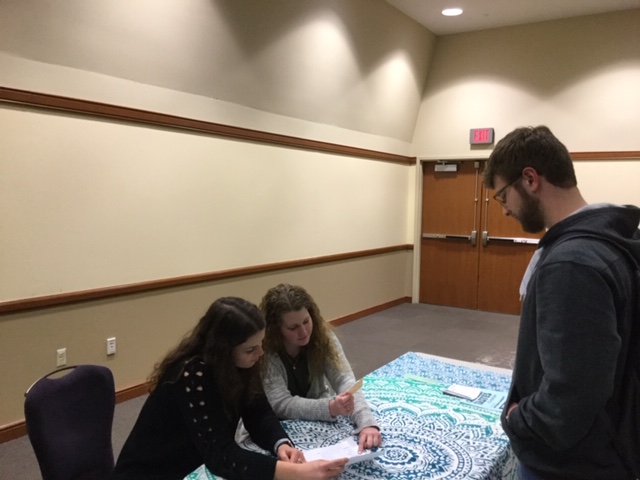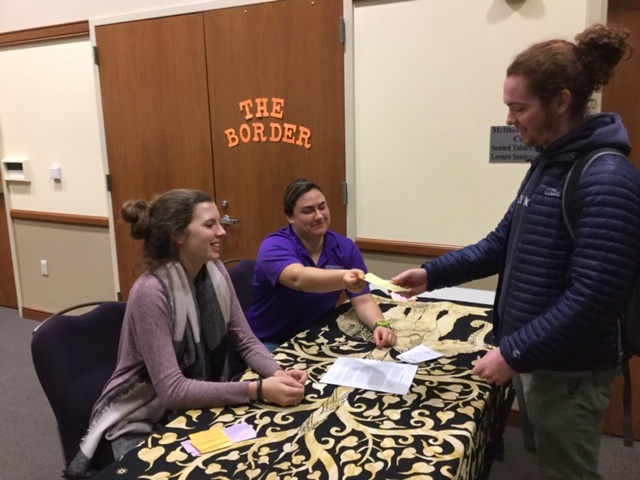The Refugees Among Us, A Simulation

It is difficult to imagine what refugees around the world experience. Although there are pictures and videos of refugee camps and the situations surrounding resettlement, these cannot completely convey the reality of life in a refugee camp. One way that we can begin to understand what millions of people go through is by attending a refugee simulation. A refugee simulation allows the experience that pictures and videos do not. It is an opportunity for students to walk in the shoes of a refugee and see a bit of what daily life entails in a camp.
On Wednesday, Feb. 27, the Catholic Relief Services club hosted a refugee simulation in the McIlhenny Ballroom. The simulation took about 20 minutes to walk through and consisted of a series of stations that focused on different aspects of life in refugee camps. First, students were given an identification card that had the name, age, country of origin, and story of a real refugee. Next, they went to a checkpoint to find the duration of their displacement based on the home country stated on their card. The average displacement periods ranged from 4-21 years.
Students then carried a five-gallon water jug to a shelter. Five gallons of water is the average amount that a refugee family is given per day for all of their drinking, cooking, cleaning, and bathing needs. In perspective, the average American shower uses 17.2 gallons of water. The next table provided a simple meal of rice and beans, which is a usual meal in camps.
There was also a table focused on the International Service Program trip to the Kino Border Initiative, and the current issues regarding migration at the United States-Mexico border. The final table was dedicated to education and advocacy, where students were encouraged to sign petitions to their congressional representatives in favor of increased government spending for refugees.
Students were also able to learn more about opportunities to be involved in programs benefiting refugees on campus. The first is with the Refugee Tutoring Program, where University students tutor elementary and middle school-aged refugee children on Sunday mornings at Elm Park United Methodist Church. Interested students can contact patricia.vaccaro@scranton.edu or bridget.mcguire@scranton.edu.
The second way to be involved is by attending Global Tastes of Scranton, an annual event in the Scranton community. The event consists of a “pop-up restaurant” with typical food from the refugee community’s home country, and cultural exhibitions which usually consist of music and dancing.
This year the event features food and culture from Bhutan and Nepal and will take place on Sunday, April 7 from 5-7 p.m. at the Scranton Cultural Center. Tickets are $35, and anyone interested in attending can contact Jessica.durkin@scranton.edu or call 570-941-4419. There are also a limited number of free student and employee tickets that can be reserved by contacting the same email and phone number.
In our world today, it is becoming increasingly important to understand the experiences and perspectives of others. The refugee simulation was an opportunity for students to step into other people’s lives for a short period of time, and to try to understand their situations a little better.








